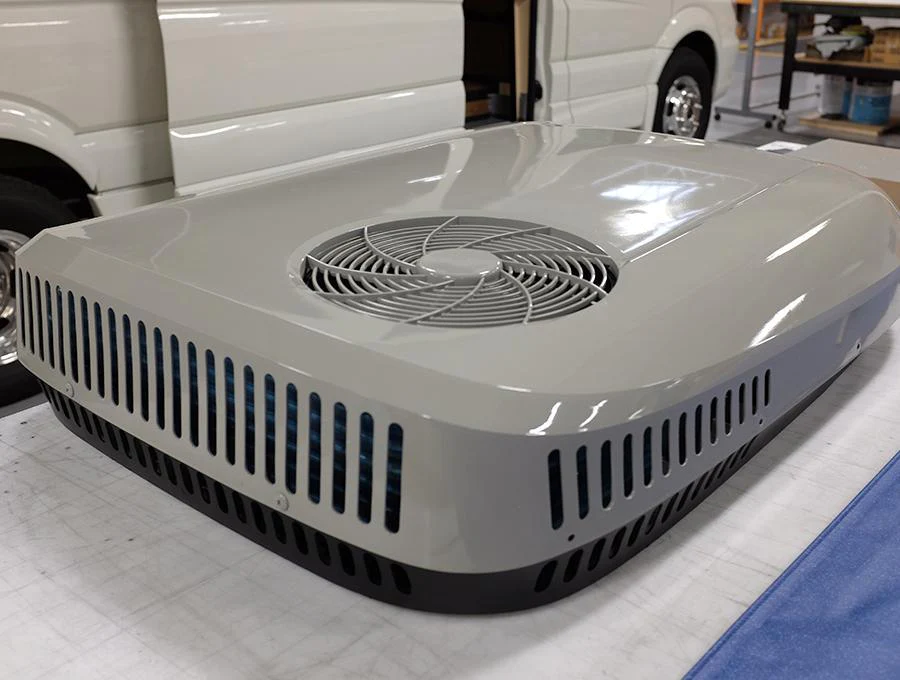Introduction
Traveling in an RV is an adventure filled with freedom and excitement. Whether you’re exploring the picturesque landscapes or embarking on a road trip with your loved ones, ensuring a comfortable environment inside your recreational vehicle is essential. One crucial aspect that contributes to a pleasant journey is a reliable RV air conditioning system. In this article, we will delve into the world of RV air conditioning, understanding the different types, maintenance tips, and how to maximize cooling efficiency for a comfortable and enjoyable ride.
Table of Contents
- Understanding the Importance of RV Air Conditioning
- Different Types of RV Air Conditioning Systems
- 2.1 Roof-Top Air Conditioners (RTACs)
- 2.2 Under-Bench Air Conditioners
- 2.3 Ducted Air Conditioners
- 2.4 Portable Air Conditioners for RVs
- Choosing the Right RV Air Conditioning System for Your Needs
- 3.1 Considering BTU (British Thermal Unit) Ratings
- 3.2 Power Source: Electric or Generator
- 3.3 Ducted vs. Non-Ducted Systems
- Maintaining Your RV Air Conditioning System
- 4.1 Regular Filter Cleaning and Replacement
- 4.2 Condenser and Evaporator Coil Maintenance
- 4.3 Checking for Leaks and Seal Integrity
- Tips for Maximizing Cooling Efficiency
- 5.1 Optimal Temperature Settings
- 5.2 Utilizing Fans and Ventilation
- 5.3 Parking Strategically to Minimize Heat
- Staying Cool: Additional Tips for RV Owners
- 6.1 Insulating Your RV
- 6.2 Using Reflective Window Covers
- 6.3 Creating Shade with Awnings and Canopies
- Common RV Air Conditioning Problems and Solutions
- 7.1 Air Conditioner Not Cooling Enough
- 7.2 Unusual Noises or Vibrations
- 7.3 Air Conditioner Leaks
- Conclusion
Understanding the Importance of RV Air Conditioning
As you hit the road in your RV, you’ll encounter diverse climates and weather conditions. Having a reliable air conditioning system ensures that you can escape the scorching heat during summer trips or maintain a comfortable temperature in colder climates. A properly functioning air conditioner not only provides relief from extreme temperatures but also enhances your overall travel experience.
Different Types of RV Air Conditioning Systems
2.1 Roof-Top Air Conditioners (RTACs)
Roof-top air conditioners are the most common type found in RVs. They are installed on the roof of the vehicle and are highly efficient in cooling the interior. RTACs are easy to operate and maintain, making them a popular choice among RV enthusiasts.
2.2 Under-Bench Air Conditioners
Under-bench air conditioners are compact units that can fit beneath a seat or in a storage compartment. They are suitable for smaller RVs or those with limited roof space. While they may have slightly lower cooling capacity, they are energy-efficient and space-saving.
2.3 Ducted Air Conditioners
Ducted air conditioners distribute cool air through vents and ducts, providing even cooling throughout the RV. These systems offer excellent temperature control and are ideal for larger RVs or those with multiple rooms.
2.4 Portable Air Conditioners for RVs
Portable air conditioners offer flexibility as they can be moved around and used in various locations within the RV. They are suitable for smaller RVs or as supplementary cooling units for specific areas.
Choosing the Right RV Air Conditioning System for Your Needs
When selecting an RV air conditioner, several factors come into play:
3.1 Considering BTU (British Thermal Unit) Ratings
BTU ratings determine the cooling capacity of an air conditioner. Larger RVs with more significant interior space will require higher BTU ratings for efficient cooling.
3.2 Power Source: Electric or Generator
Electric air conditioners are standard and run on shore power when connected to electrical hookups at campgrounds. On the other hand, generator-powered units allow you to cool your RV even when not connected to external power sources.
3.3 Ducted vs. Non-Ducted Systems
Ducted systems provide even airflow throughout the RV, while non-ducted systems cool specific areas directly. Consider your RV layout and preferences before making a choice.
Maintaining Your RV Air Conditioning System
Proper maintenance ensures your RV air conditioner operates at peak performance:
4.1 Regular Filter Cleaning and Replacement
Cleaning and replacing air filters regularly help maintain efficient airflow and improve cooling capacity.
4.2 Condenser and Evaporator Coil Maintenance
Cleaning the condenser and evaporator coils from dirt and debris enhances cooling efficiency.
4.3 Checking for Leaks and Seal Integrity
Inspecting for leaks and ensuring proper seals prevent refrigerant loss and maintain cooling effectiveness.
Tips for Maximizing Cooling Efficiency
Follow these tips to optimize your RV air conditioning system:
5.1 Optimal Temperature Settings
Set the thermostat to an appropriate temperature to balance comfort and energy consumption.
5.2 Utilizing Fans and Ventilation
Using fans and opening windows strategically can improve air circulation and reduce reliance on the air conditioner.
5.3 Parking Strategically to Minimize Heat
Choosing shaded or well-ventilated parking spots can prevent the RV from heating up excessively.
Staying Cool: Additional Tips for RV Owners
Make the most of your RV air conditioner with these extra cooling tips:
6.1 Insulating Your RV
Adding insulation to your RV helps retain cool air and keep out unwanted heat.
6.2 Using Reflective Window Covers
Reflective covers on windows prevent heat from entering the RV and maintain a cooler interior.
6.3 Creating Shade with Awnings and Canopies
Awnings and canopies provide shade and protect the RV from direct sunlight, reducing interior heat.
Common RV Air Conditioning Problems and Solutions
Address these common issues to keep your RV air conditioner in top shape:
7.1 Air Conditioner Not Cooling Enough
Check for clogged filters, refrigerant leaks, or faulty thermostats. If issues persist, consult a professional.
7.2 Unusual Noises or Vibrations
Strange noises may indicate loose components or fan obstructions. Have the system inspected promptly.
7.3 Air Conditioner Leaks
Leaks can lead to decreased cooling efficiency. Contact a technician to fix the problem.
Conclusion
A well-functioning RV air conditioning system is essential for a comfortable and enjoyable travel experience. Understanding the different types of RV air conditioners, maintaining them regularly, and employing cooling efficiency tips will ensure that you stay cool on the road, regardless of the weather.





Leave a reply